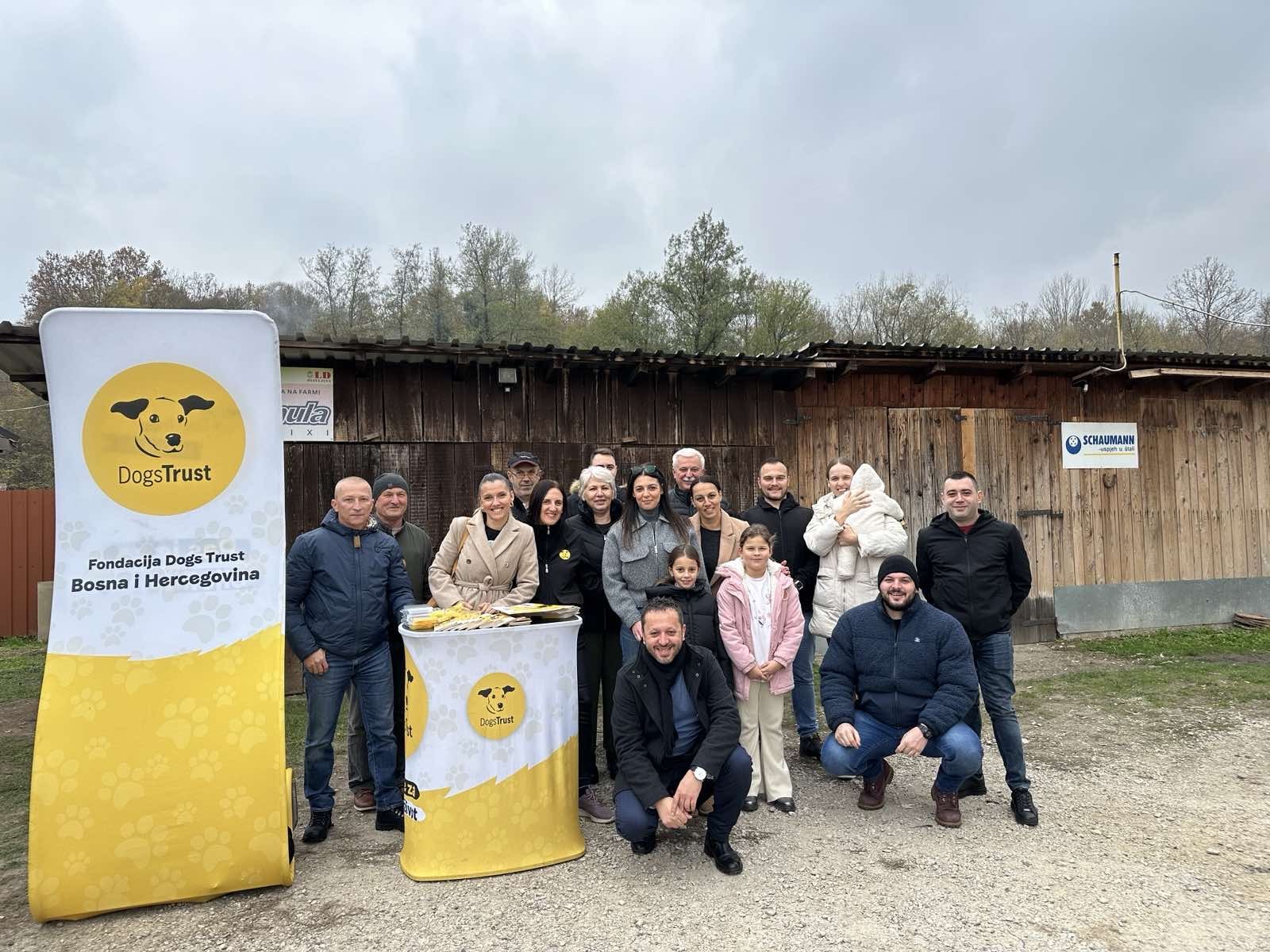
Team members of the Dogs Trust Foundation visited the Municipality of Lopare on November 13, 2024 and marked the Open Days of the "Lopare" veterinary clinic, which has been participating in the campaigns of the Dogs Trust Foundation since 2022.
The goal was to promote humane and legal measures for the management of the dog population in this small but so far proven responsible municipality, which are financed by the Dogs Trust Foundation according to the Memorandum of Cooperation signed with the Municipality.
Thanks to this cooperation and the commitment of the local administration for the humane and legal management of the dog population, the number of abandoned dogs is gradually stabilized, which opens the possibility for the competent authorities to continue to actively work on the consistent implementation of legal measures towards the humane, permanent resolution of the problem of abandoned dogs, with savings from the budget and capacities improved through the Dogs Trust’s programs.
Through the activities of Dogs Trust, three veterinary experts of this local community successfully completed the Training Program funded by Dogs Trust, which is carried out in cooperation with the Faculty of Veterinary Medicine of the University of Sarajevo, and on two occasions, the counting of abandoned dogs was carried out through a professionally created application, and over 500 dogs received neutering and additional veterinary treatment, of which more than 300 were females. This prevented thousands of new dogs from ending up on the street.
Counting dogs, which should be a regular practice of all communities, is of great importance because this is the only way to measure the results of campaigns and effectively plan future ones. Through the promotion of dog neutering campaigns, the awareness of citizens about the irresponsible ownership of dogs as the root of the problem was also raised, and that the only way to solve the problem is to act on both causes and consequences, exclusively through a humane, self-sustainable system prescribed by the Law on the Protection and Welfare of Animals of BiH.
As part of the visit, a meeting of representatives of the Dogs Trust Foundation with Mayor Rado Savić was held, and frameworks were set up to strengthen the initiative of the Municipality in the consistent implementation of legal measures, starting with the inventory of all households that keep dogs, in order to ensure the control of responsible ownership and legal obligations of registration, chipping and regular vaccination of dogs against rabies.
At the initiative of Mayor Savić, Dogs Trust will help the Municipality in the coming period through the education of the necessary staff and offer other available channels and tools for educating the general public on this issue.
An important initiative that Mayor Savić will insist on is the raising of the issue of cooperation in meetings with bordering municipalities with which he already has cooperation, because this is the only way to solve the problem jointly and permanently.
The Dogs Trust welcomes this initiative because the holistic, humane approach prescribed by law is the only way to solve the problem so that it is no longer repeated and thus justify the budget funds of the authorities and those responsible for this issue to the citizens. In contrast, short-term and often illegal and inhumane activities, which we sometimes witness, only mask the problem, unnecessarily suppress dogs, and thus unsustainably and unjustifiably use available funds.
Bosnia and Herzegovina has established a state database for animals that enables the supervision and control of responsible dog ownership as a key preventive and corrective measure that, in combination with other measures, such as mass neutering as the most effective humane measure of dog population management, and education, leads to a gradual but permanent solution.
Cooperation with the municipality of Lopare is implemented within the new approach of Dogs Trust, according to which this organization provides its support and cooperation exclusively in regions whose local authorities are committed to systemic, permanent and humane problem solving and which are already actively working on the establishment and implementation of the system.